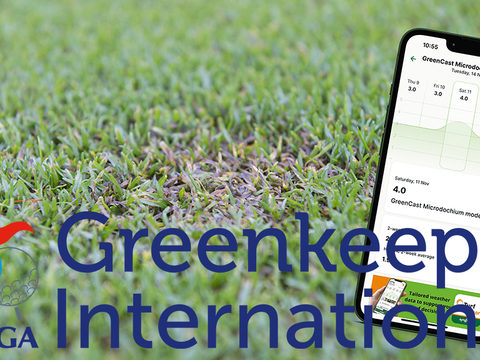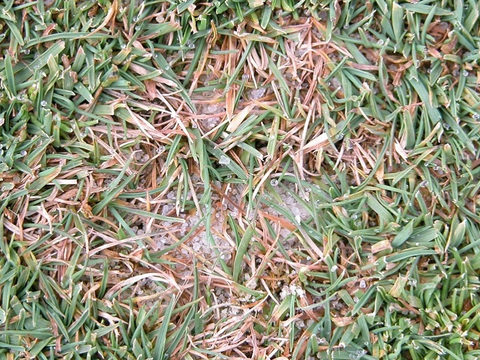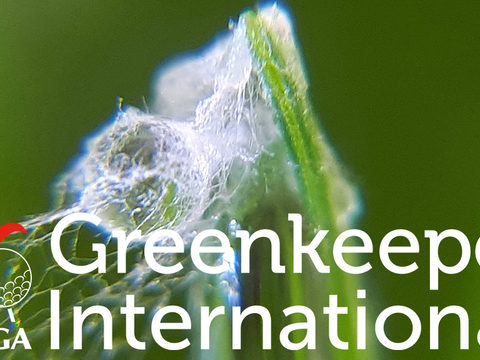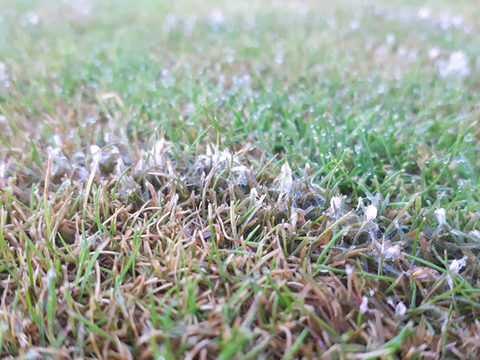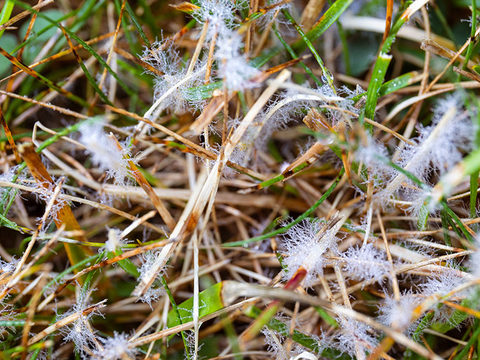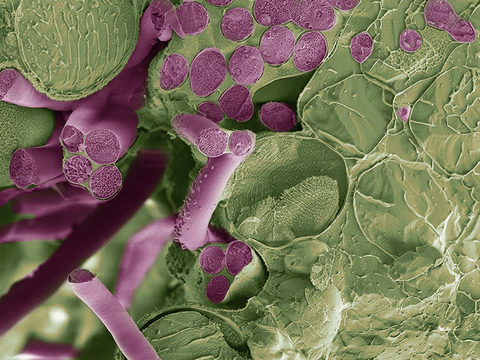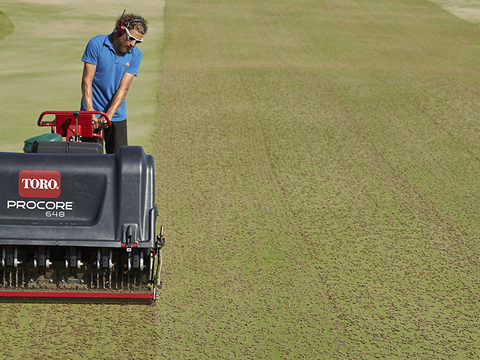GreenCast in UK and Ireland - Contact+ on target for effective disease control

The bio-inspired Syngenta Contact+ fungicide active for turf, fludioxonil, will offer an entirely novel action that effectively explodes targeted disease spores. Syngenta Technical Manager, Dr Simon Watson, reports that fludioxonil's mode of action is unique and extremely exciting, creating the opportunity to develop new disease control strategies.
Introducing fludioxonil to greenkeepers and golf club managers at the golf and turf management show, BTME, in Janaury, Dr Watson said: "Fludioxonil was inspired by the naturally occurring antifungal compound of some soil bacteria. It works in an entirely different way to the strobilurin and triazole fungicides - which opens up new opportunities."
Dr Watson (below) explained that, when fludioxonil locks onto targeted disease spores, it upsets the osmotic balance within the cells and effectively tricks the pathogen into absorbing water. The result is that the spore rapidly swells until it - quite literally - explodes. This happens so quickly there is no time for the spore to develop mycelial growth into the leaf, thus preventing damage to the surface and reducing the threat of subsequent infection.

He also highlighted that fludioxonil is believed to bind to a specific protein of targeted turf disease spores, which would mean that beneficial soil microbes with different protein structures should not be affected.
Fludioxonil not only targets disease pathogens on the leaf surface, but has the same effect on Fusarium disease spores in the thatch layer and the soil surface, added Dr Watson. "The disease threat is ever present in the thatch layer, with spores living on decaying material and roots and waiting for the right conditions to flare up," he warned. "This additional thatch and soil activity of fludioxonil, explains why it's described as contact+.
"Fludioxonil changes the way we think about disease control, by reducing disease spore numbers and lowering the risk of infection," added Dr Watson.
Syngenta also demonstrated application techniques and new nozzle technology at BTME that will enable turf managers to deliver spray treatments on target to optimise disease control on the leaf, as well as in the thatch and the soil surface. User trials, organised by Scotts Professional, have identified the potential for fast action and long-lasting protectant Contact+ activity giving highly effective Fusarium control.
Dr Watson reported the new fungicide is currently being evaluated by the Chemicals Regulation Directorate (CRD) and Syngenta hopes the registration will be available later this year.
Key points:
- Fludioxonil is the active of a new turf fungicide with an exciting alternative mode of action
- Contact+ activity targets disease pathogens in leaf, thatch and soil surface
- Reducing pathogen numbers lowers the risk of disease attack
- Trials have shown highly effective, long-lasting results



